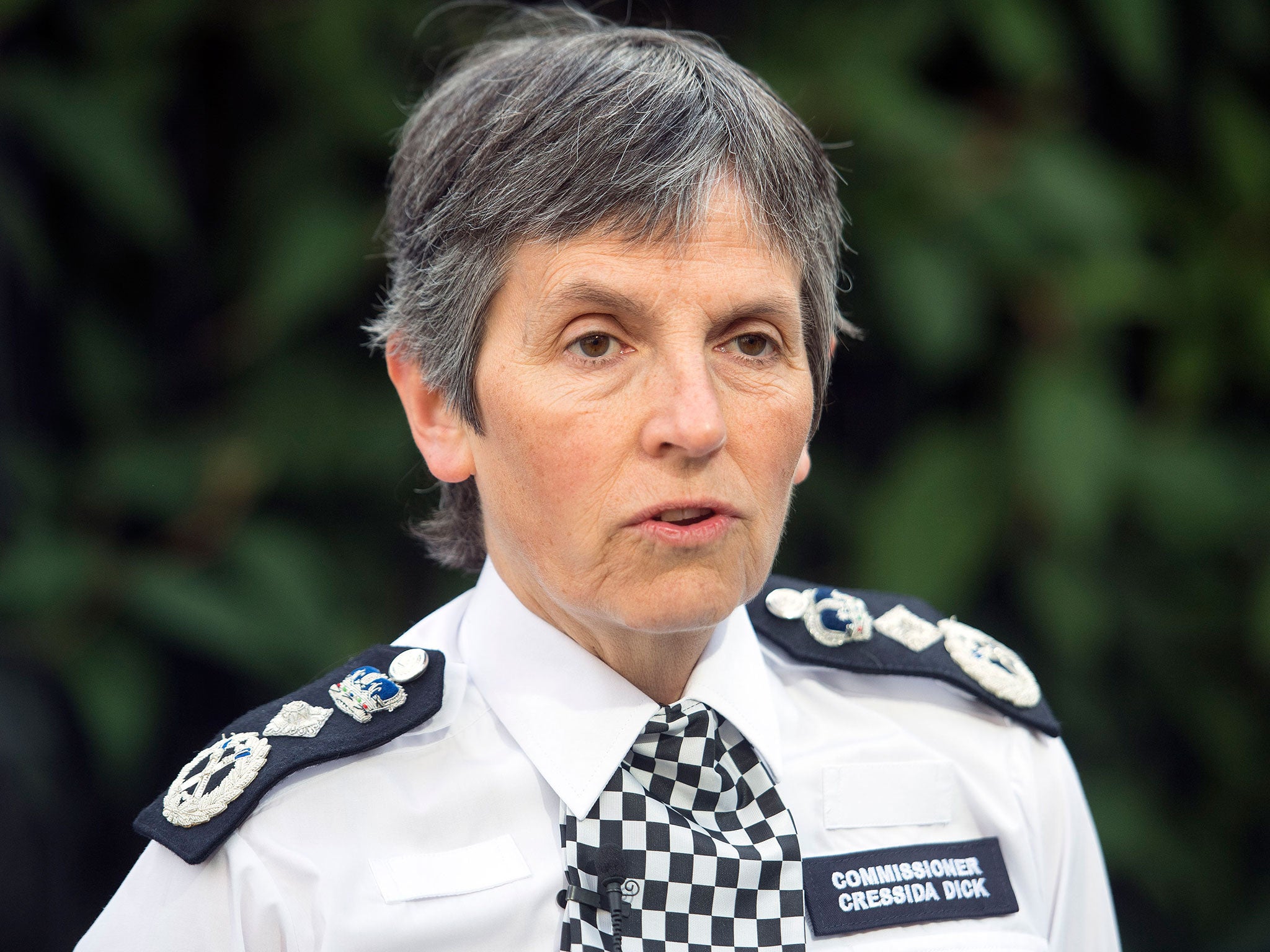Britain's most senior police officer Cressida Dick blames social media for fuelling knife crime among teenagers
People are 'able to go from slightly angry with each other to 'fight' very quickly,' Metropolitan Police Chief says

Britain’s most senior police officer has blamed social media for the soaring rate of knife crime in the UK, particularly among children.
After 13 Londoners were killed in two weeks this month, Metropolitan Police Commissioner Cressida Dick said websites and mobile phone applications such as YouTube, Snapchat and Instagram were in part to blame for the bloodshed.
Trivial disputes could escalate into violence “within minutes” when rivals set out to goad each other on the internet, Ms Dick said.
“There’s definitely something about the impact of social media in terms of people being able to go from slightly angry with each other to ‘fight’ very quickly,” she told The Times.
She said that insults or threats online “makes [violence] faster, it makes it harder for people to cool down. I’m sure it does rev people up.”
She also compared the speed at which youths with no previous or very limited criminal record can become killers to the way some Islamic extremists become radicalised in a matter of days.
Last August, 15-year-old Jermaine Goupall was knifed to death in Thornton Heath, south London, in the climax of a feud between rival gangs posting mocking videos on YouTube.
So far this year, 29 people have been knifed to death just in London and fatal stabbings in England and Wales are at their highest levels since 2010-2011.
It started with the murder of four young men during New Year’s Eve celebrations and has continued at a rate of one fatal stabbing every three days.
Teenagers as young as 17 are among the victims, while many more have been severely injured in a spate of violence that has sparked large-scale police operations and urgent policy changes.
If the bloodshed continues at the same rate, more than 121 people will be stabbed to death in the capital by the end of the year, a dramatic 50 per cent increase on 2017.
A 23-year-old man lost his life on Thursday night after being stabbed in the neck near Plumstead railway station in south-east London.
The victim was able to call a friend for help and was driven to hospital, but later died from his injuries. Police do not yet know why he was attacked.
Fears are mounting over the resurgence of the so-called “postcode wars” that claimed dozens of lives in London over the past decade.
They saw territorial divisions between rival gangs brutally enforced across the capital, with victims unknowingly crossing invisible borders between postcodes or even smaller areas of specific streets or housing estates.
Ms Dick said drug dealing and absent fathers were also a challenge, but emphasised “it is absolutely as much about socioeconomic factors as anything else”.
She urged recreational drug users to consider the “fear and misery” they were causing by fuelling street dealing and the associated knife crime.
Press Association contributed to this report
